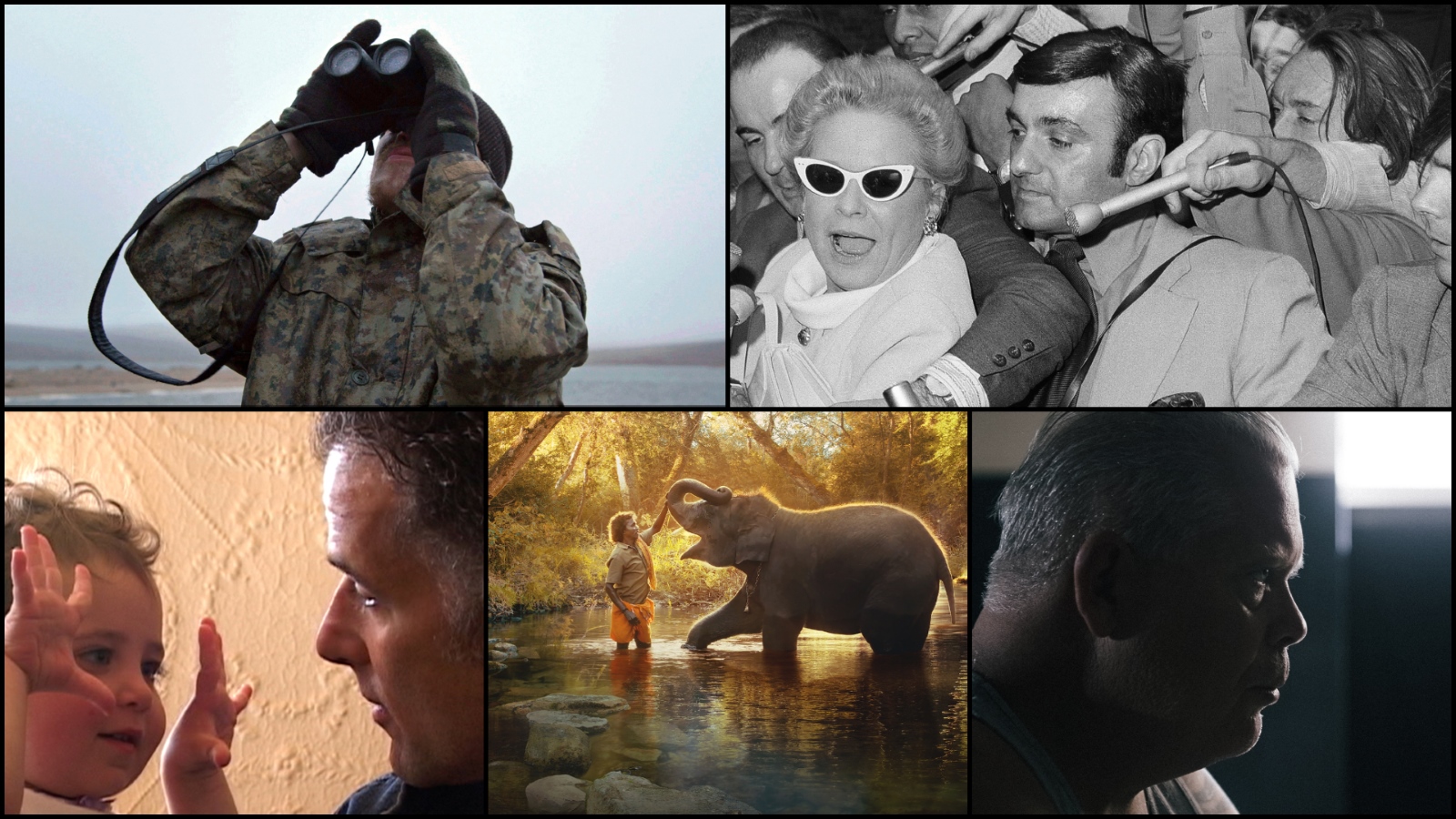Let’s get this out of the way right now: forget Viola Davis, Danielle Deadwyler, Sarah Polley, Decision to Leave, and the cinematography from Top Gun. The most egregious snub of Oscars 2023 was the flat-out robbery of Nuisance Bear. The Canadian environmental doc with the one-take wonder, Nuisance Bear deserved to bring directors Jack Weisman and Gabriela Osio Vanden the gold. Honestly, the only thing more ridiculous than the fact that more Academy voters walked out of Top Gun: Maverick praising the writing over the camerawork is the idea that the doc crowd didn’t recognize the artistry in this stirringly effective climate change fable. You can watch Nuisance Bear here via the New Yorker.
Now that we’ve served the obligatory tea, it’s only fitting to note that the final five nominees include two docs from Nuisance Bear’s own distributor. The New Yorker, like Netflix, scored two nominations in the final five. This year’s crop of Oscar-nominated short films offers a snapshot of the state of documentary: a handful of deep-pocketed streamers dominate the field with docs that follow a successful house style. There are character pieces and a feel-good environmental doc in Nuisance Bear’s stead, along with an eclectic voice in Jay Rosenblatt, who occupied the lone “indie slot” last year as well. All the nominees are therefore available via streaming except for Rosenblatt’s How Do You Measure a Year?, but Oscar completists can do more than merely check off the boxes on their cheat sheet. The Oscar nominated short docs, perhaps more than any other category among the Academy’s nominees this year, offer a window into an increasingly and unexpectedly competitive corner of the market. – PM
Here are POV’s takes on the five Oscar-nominated short docs this year:
The Martha Mitchell Effect
Donald Trump might have called Martha Mitchell a “nasty woman” if he’d been in the Oval Office during the 1970s, but one can practically hear the term seething from Richard Nixon’s mouth in The Martha Mitchell Effect. This brilliant Netflix doc directed by Anne Alvergue unpacks a whopping amount of archival material to illuminate Washington’s most talked about chatterbox. The film examines Martha Mitchell’s many talk show appearances and interviews as it whisks audiences back to a time when the wife of the U.S. Attorney General was a socialite célèbre on TV. As the wife to A.G. John Mitchell, Martha was the ultimate Washington insider with loose lips. By tackling the dramatic turn in Mrs. Mitchell’s fortune, Alvergue finds contemporary resonance in this essay about women who are punished for speaking up.
The Martha Mitchell Effect examines Mitchell’s role in the Watergate scandal by drawing upon Nixon’s extensive recordings of White House conversations alongside the press that she generated in her campaign to expose the President. Martha Mitchell insists she’s being silenced by the White House after connecting the dots about what happened at Watergate—the very building in which she and her husband resided—after she was ferried away from home the weekend of the break-in and kept in the dark about events as they unfolded. She claims that when she started asking questions and calling her Rolodex of contacts, she was held hostage by government security and abused. Mitchell dishes the dirt to reporters snooping for scoops and lays the blame on Tricky Dick to save her husband. In turn, headlines deem her a drunk and a loony, charges invented by Nixon and his cronies.
Alvergue’s film unpacks the psychological manipulation that was dubbed “The Martha Mitchell Effect,” which describes an occurrence in which people are manipulated to question the reality in which they live. Nowadays, people call that gaslighting and Mitchell’s story also fuels the dramatic mini-series Gaslight with Julia Roberts playing the Washington truth-teller. This doc is the better take on the Martha Mitchell Effect, though, and it’s a riveting, masterfully assembled essay that combines public headlines with private records. Full of intrigue, scandal, twists, turns, and a doozy of a character, The Martha Mitchell Effect salutes an unsung hero and delivers all the receipts that prove her tale. – PM
Haulout
There’s a very different chatter to be heard in Haulout. Where Washington intrigue buzzes through The Martha Mitchell Effect, the whirs of walruses drones through this fellow Oscar short doc. Haulout is a handsome observational doc from directors Evgenia Arbugaeva and Maxim Arbugaev. The film sees a remote location in the Russian Arctic through the eyes of a lone scientist, marine biologist Maxim Chakilev. Haulout watches patiently as the Chakilev sits around, scrapes at tinned food, and strolls the beach. Then, one loud morning, tens of thousands of walruses land on the shores. They literally surround his small cabin.
By capturing this one strange occurrence, Haulout immerses viewers in the consequences of climate change. The film has not a word of dialogue, but the walruses speak volumes with their barking and braying as they roll frantically around the shore. The film is also a strikingly composed snapshot of displacement as the walruses go out like the tide, leaving behind nothing but the bodies of unlucky members of the herd—over 600 of them, the largest number of fatalities recorded by Russian scientists. The doc is quietly effective. –PM
Stranger at the Gate
Stranger at the Gate joins Haulout in making a strong showing for The New Yorker among the Oscar-nominated short docs this year. They might have a better shot at the prize with Stranger at the Gate, which credits human rights icon Malala Yousefzai as executive producer (who reported received thunderous applause at the Oscar nominees’ luncheon this week). Stranger also favours a direct-address interview aesthetic that echoes the “house style” in the streaming game, noted by the win last year for the New York Times’ Op-Docs’ The Queen of Basketball, which almost serves as a template for this worthy nominee.
Director Joshua Seftel sits down with a cast of participants, including Afghan refugee Bibi Bahrami and U.S. Marine Mac McKinney, who recount a riveting tale of faith and friendship. The men and their families describe a tightly knit community that McKinney literally sought to blow up after he returned shell-shocked from Afghanistan and saw people he was trained to perceive as enemies congregating on his home turf. Seftel unfolds the interviews with dramatic twists, but it’s the deeply introspective considerations of community ties that will floor you. Stranger at the Gate is a moving study in humanity. – PM
How Do You Measure a Year?
This is the kind of doc that only a veteran filmmaker would make. Jay Rosenblatt, whose award-winning shorts have made an impact since the 1980s, has been shooting his daughter Ella’s birthdays since she was two. Every year, he asks her probing questions about who she is, what she loves, where her power lies, and what she wants to be as an adult. Happily for the film, Ella is articulate even as a baby; we like her as she grows up although—perhaps unfortunately—this very personal doc lacks any stunning revelations.
What is impressive about Rosenblatt’s film is not only the concept but his committed execution. Rosenblatt is a prolific and versatile filmmaker, whose work has gone in myriad directions over the years, but it has moved towards the more autobiographical in recent times. Phantom Limb explored his feelings about the death of his brother and marked a breakthrough for him. His previous Academy Award nominated short When We Were Bullies was a very strong memory piece, which looked at a highly problematic episode in fifth grade when Rosenblatt was involved in the forceful and shameful intimidation of a fellow student.
Both of those films were experimental, not surprising in that Rosenblatt has a reputation as a formalist filmmaker. The current film is only experimental in its concept, which mirrors that of Linklater’s Boyhood, in its use of duration as its primary narrative device. Perhaps the most impressive aspect of How Do You Measure a Year? Is the intimate collaboration between Ella and Jay Rosenblatt. There are times, especially in her mid-teens, when Ella is finding it hard to answer her father’s questions. But she perseveres as does he and the result is an Oscar nominated film.–MG
The Elephant Whisperers
This is the kind of sincere emotional doc that wins awards. Yes, I’m going to stake out a claim: it’s this year’s Oscar winning short doc. The reasons are simple and, I hope, not cynical. Like My Octopus Teacher, it’s about the love between people and other creatures, although in the case of elephants, it’s demonstrably real in a way that’s far different from octopuses. Like the 2020 Oscar doc feature winner, this beautiful short is shot in an exotic location. Both films exude positivity and doesn’t that make each an easy choice as a winner?
Set in the natural splendour of the Mudumalai National Park in South India, The Elephant Whisperers is a gorgeously shot film about Billie and Bomman, an elderly indigenous duo, who take care of orphaned baby elephants, Raghu and Ammukutty. You get to know the older of the two elephants, Raghu, exceedingly well, and he’s a charmer. As a baby, Raghu would have died if he hadn’t put his trust completely in his loving mentors. In scenes with Raghu playing with a ball, running in a field and being bathed, there’s an intimacy and warmth between the elephant and his surrogate parents that is wonderful to see.
While nursing and mentoring two adorable elephants, Billie and Bomman fall in love and marry. It seems completely understandable within the context of the film: they’ve given so much love to elephants, they are clearly capable of more for each other. Though each of them has dealt with tragic situations in the past, the overall feeling throughout the film is one of devotion and caring—for humanity, for animals and for nature.
Genuinely sweet-natured, The Elephant Whisperers delights us, with moving scenes between people and elephants and the natural world that will touch the heart.–MG
The Oscar Nominated Short Docs open Feb. 17 at TIFF Lightbox and Feb. 24 at Hot Docs Ted Rogers Cinema.














